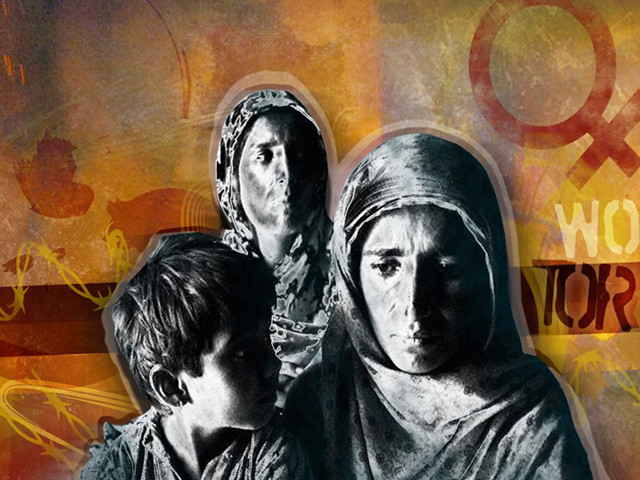The faltering initiative for women
Gender Reform Action Plan to promote gender equality fell in doldrums due to misappropriation of funds.

An initiative that the government was terming as ‘the lifeline of the official efforts to lift the living standards of women,’ was closed down when the officials could not maintain a balance in spending the Rs418 million allotted for this plan.
National and international organisations in their five-year evaluation of the programme also termed it a failure.
Japan International Cooperation Agency (JICA) revealed that revision of the Rule of Business and Gender Development Grants were released without assessing the needs of the districts, which was a violation of the rules and regulations. These irregularities took place when Sumera Malik was the Minister of Women Development in 2007. JICA further claimed that misappropriation worth millions of rupees took place in the gender development grants under her tenure.
After these findings, the incumbent advisor on women development, Yasmeen Rehman, recommended that the programme be shut down.
“The matter will be taken up in the Public Account Committee (PAC) soon,” she said.
Secretary Women Development Batool Iqbal Qureshi said that Rs250 million were distributed without following the requirements in 2008-09.
The project was launched by former President Musharraf in 2005 under the supervision of Nilofar Bakhtiar, who was the advisor on women development at the time.
GRAP evolved from a donor support project in 2002 and became a Public Sector Development Plan-of the federal government through PC-1. It had a project life of three years, concluding in June 2008. However, it was given two extensions later. Its main object was to empower females by creating awareness.
Fouzia Yazdani, Development Consultant and Policy Researcher, who studied the performance of programme elaborately said, “The GRAP had structural design faults in its PC-1 which should not be attributed to the working of project team.”
Besides, the Parliamentary Secretary on Women Development Dr Zil-e-Huma said that the GRAP could not meet the set targets: 1) Administrative Institutional Restructuring 2) Budgetary and Policy Reforms 3) Women’s Employment Public Sector and Political Empowerment, the initiator of the project.
Senator Nilofar Bakhtiar said that she never favoured the shelving of the project arguing that risk factors that posed significant challenge to GRAP were always a hindrance in the path of such initiatives.
“The strong revival of religious groups in Pakistan has always been a stumbling block in way of meeting the targets of such plans, which otherwise could be achieved under emancipation of women,” she said. “The growing anti-western sentiments are also placing the issue of development of women on the back burner,” she added.
MNA Sumera Malik, however could not be reached for comments. Rehana Hashmi, the then project director (GRAP) said that the project had limited capacity as the District Gender Mainstreaming Committees could not directly approach the set targets.
To a query, she said that GRAP had moved a summary to the then Chief Minister Punjab Pervaiz Elahi which was approved and separate Directorate of Women Development established; but it could not deliver its objectives after the funds were not released accordingly.
Meanwhile chairperson of senate standing committee on women development Senator Shirala Malik told The Express Tribune that the committee was probing the shelving the project.
“A high level review panel was formed because of the alleged corruption in the project,” she explained. Saima Munir of Aurat Foundation was of the view that the government should not close down the GRAP ignoring women of the conflict-hit areas like those of tribal region and other rural areas.
Published in The Express Tribune, August 16th, 2010.



















COMMENTS
Comments are moderated and generally will be posted if they are on-topic and not abusive.
For more information, please see our Comments FAQ